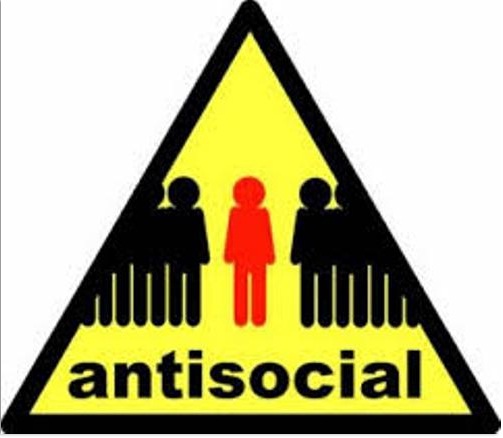Antisocial Personality Disorder Causes, Symptoms, Diagnosis and Treatment

What Is Antisocial Personality Disorder?
Antisocial personality disorder is a type of chronic mental condition in which a person’s ways of thinking, perceiving situations and relating to others are dysfunctional and destructive.
People suffering from antisocial personality disorder have no regard for right and wrong. They often disregard the rights, wishes and feelings of others.
Those with antisocial personality disorder tend to antagonize, manipulate or treat others either harshly or with callous indifference.
Causes Of Antisocial Personality Disorder:
Researchers are yet to find a definite cause for this disorder. However over the years different theories have been proposes in an attempt to explain antisocial personality disorder.
Some of them include the following:
- Genetic and environmental influences
Some people may have genes which make them vulnerable to developing antisocial personality disorder and life situations may trigger its development.
- Personality problems like lack of empathy
Symptoms Of Antisocial Personality Disorder:
Some of the symptoms for antisocial personality disorder may include:
- Failure to conform to social norms with respect to lawful behaviors as indicated by repeatedly performing acts that are grounds for arrest
- Deceitfulness, as indicated by repeated lying, use of aliases, or conning others for personal profit or pleasure
- Impulsivity or failure to plan ahead
- Irritability and aggressiveness, as indicated by repeated physical fights or assaults
- Reckless disregard for safety of self or others
- Consistent irresponsibility, as indicated by repeated failure to sustain consistent work behavior or honor financial obligations
- Lack of remorse, as indicated by being indifferent to or rationalizing having hurt, mistreated, or stolen from another
Diagnosis Of Antisocial Personality Disorder:
The following tests and exams are conducted to diagnose antisocial personality disorder:
- Physical exam
This is done to help rule out other problems that could be causing symptoms and to check for any related complications.
- Lab tests
These may include, for example, a complete blood count (CBC), a thyroid function check, and screening for alcohol and drugs to determine if there are other causes for symptoms.
- Psychological evaluation.
A doctor or mental health provider explores thoughts, feelings, relationships, behavior patterns and family history, which may include psychological tests about personality. He or she asks about symptoms, including when they started, how severe they are, how they affect daily life and whether similar episodes have occurred in the past. The doctor also asks about thoughts of suicide, self-injury or harming others.
Treatment Of Antisocial Personality Disorder:
Antisocial personality disorder is hard to treat for those affected rarely seek and accept treatment. However its treatment is very important.
Treatment includes psychotherapy, medications, self help strategies and hospitalization.
People with antisocial personality disorder may also need treatment for other conditions, such as depression, anxiety or substance use disorders.
By : Natural Health News




